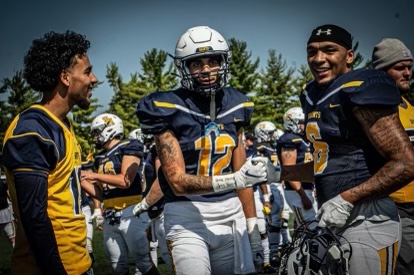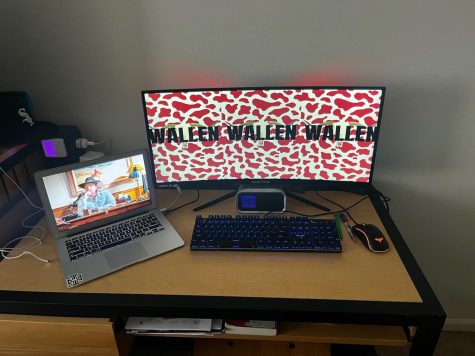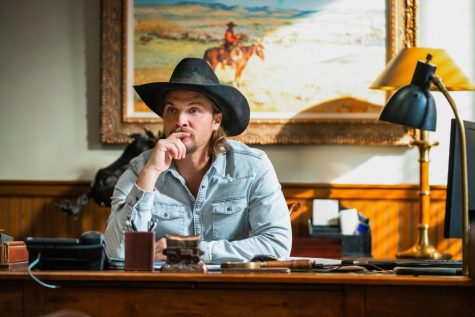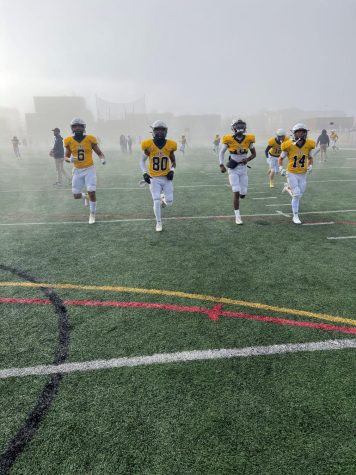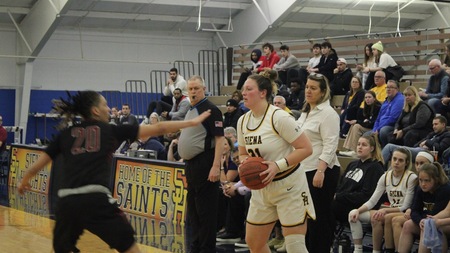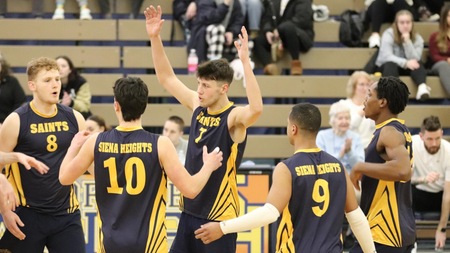Adjusting to the Christian Perspective

Jeff Conolly Columnist

Columnist
In the fall of 2011, I was asked to appear in a religious-themed stand-up comedy show at Central Michigan University. It was a clever idea, as far as comedy nights go, as each comedian came from a different religious background, and after telling jokes was interviewed onstage about their religious upbringing and how it influenced their lives, worldviews, and comedy.
One man was a Pakistani Muslim, another a full time evangelical minister, and I was to be the formerly Baptist atheist. It is, to date, one of the best experiences I have ever had in comedy (albeit most evenings are spent trying to distract drunken idiots so that they buy more chicken wings, but this was greater than any other highlight, including working with a few comedy legends).
To explain why, we have to back up to the fall of 2009, my first semester at Siena Heights University. I chose Siena for two reasons: it was in commuting distance and it was less expensive than the other alternatives. At the time, I loathed religion and all associated with it. My father was a Baptist minister and missionary that had recently been shamed from the ministry. I had convinced myself that anyone who continued to be religious was either too dumb to realize better or were horrible people (like how I felt about my father at the time) who were only using it as a tool to cruelly manipulate others.
sac lancel pas cher
lancel premier flirt
sac bb lancel
lancel brigitte bardot
Lancel French Flair
lancel soldes
http://www.premierflirtsolde.top
premierflirtsolde
sac bb lancel
lancel soldes
plainjanesrestaurant
sac bb lancel
http://www.plainjanesrestaurant.com
Sac lancel
lancel soldes
lancel premier flirt
sac lancel pas cher
Needless to say, I wasn’t thrilled that a nun was teaching my English class, and was furious that I had to take a religion course. I figured it was like ripping off a band-aid, so I decided to take the religion course my first semester. I signed up for Peacemaking since it sounded the most innocuous (I figured I’d listened to the Beatles before, I could get down with this hippy class).
When I found myself in the course, however, I had a problem. First, the class was hardly some hippy romp; this was a deeply catalyzing discussion of the cyclical nature of violence and the role that religion can play in preventing it. Second, the instructor, Dr. Joseph Raab, greatly challenged my preconceptions of believers. He clearly was intelligent. He’s a large part of the reason I can use words like “cyclical” and “catalyzing” today, as he a great teacher with a both impressive and infectious vocabulary. This meant that unless he was a horrible and manipulative person, which he clearly wasn’t, I really had to rethink my perception of people that believed.
I must have drove him crazy in that class with the amount I would question him about his personal thoughts and beliefs. Growing up, I had been taught a Christianity that was anti-science, anti-other religions and cultures, and anti-homosexual. I had been told on several occasions that all Catholics were overly litigious lame ducks that were all on their way to hell. Yet, suddenly I was face-to-face with a man who had a profound and positive faith, who I greatly respected for his intellect, who’s very philosophies challenged me to be a better human being.
It is strange, as I still don’t believe, necessarily, yet that class was my Saul on Damascus moment. I fundamentally came out of Peacemaking as a different and better person. I left that class respecting not just Christian believers, but all people that thought or believed different than I did. This foundational respect led to me becoming a better husband (as my wife is still a Christian), a better son (I have restored my relationship with my father), and a better father to my two beautiful daughters.
Cut ahead to CMU, where after telling a couple jokes about how a nun taught me the origin of the “F word” (another thing I can thank Siena for), I sit down for an interview and am asked about my perspectives on religion. What followed was me basically outlining what I have said in this paper, but it was said in front of a group of college students who were all ready for me to tear religion a new one.
After the show, one gentleman came up to me and said that he had a similar situation. He had been waiting for my interview because he thought I was going to put all the Christians in their place, to use my wit and hate to make them look like fools and morons. When I didn’t, and instead talked about the profound impact that religious people have had on my life, he decided to try adjusting his perspective as well.
His words are why that show is better than making a room of five hundred laugh, or working with Bobcat Goldthwait. Siena touched my life and made me a better person, and perhaps I passed some of that on. In the end, that seems to be why Siena is here, why they employ great teachers, and why both are great examples of the real positive good that religion and Christianity can do in the world.


